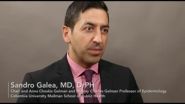(Press-News.org) WASHINGTON -- The U.S. Department of Defense and U.S. Department of Veterans Affairs should track the outcomes of treatment for post-traumatic stress disorder (PTSD) provided to service members and veterans and develop a coordinated and comprehensive strategy to do so, says a new congressionally mandated report from the Institute of Medicine. Without tracking outcomes, neither DOD nor VA knows whether it is providing effective or adequate PTSD care, for which they spent $294 million and more than $3 billion, respectively, in 2012. The report is the second of a two-phase assessment of PTSD services for service members and veterans and echoes the findings of the first report, issued in 2012.
An estimated 5 percent of all service members in the military health system have been diagnosed with PTSD, and the prevalence is 8 percent for those who have served in Iraq and Afghanistan, the report notes. The number of veterans of all eras who sought care for PTSD from the VA more than doubled from 2003 to 2012 -- from approximately 190,000 veterans (4.3 percent of all VA users) in 2003 to more than a half million veterans (9.2 percent of all VA users) in 2012. For those treated for PTSD in the VA system in 2012, 23.6 percent (119,500) were veterans of the Iraq and Afghanistan wars.
DOD and VA have a multitude of programs and services that range in their intensity to prevent, screen for, diagnose, and treat current and former service members who have PTSD or who are at risk for it. Right now, DOD's PTSD treatment programs appear to be local, ad hoc, incremental, and crisis-driven, with little planning devoted to the development of a long-range approach to obtaining desired outcomes, the report says. VA's PTSD programs have a more unified organizational structure, and the agency is able to ensure more consistency of treatment. However, without data on which treatments patients are receiving and whether they are improving as a result of their treatment, the departments have no way of knowing whether the care they are providing is effective or whether DOD and VA's expenditures are resulting in high-value health care, said the committee that wrote the report.
"Given that the DOD and VA are responsible for serving millions of service members, families, and veterans, we found it surprising that no PTSD outcome measures are used consistently to know if these treatments are working or not," said committee chair Sandro Galea, professor and chair of the department of epidemiology, Mailman School of Public Health, Columbia University, New York City. "They could be highly effective, but we won't know unless outcomes are tracked and evaluated." An exception, the committee noted, are VA's specialized intensive PTSD programs, which are collecting outcomes data. Nevertheless, these programs serve only 1 percent of veterans who have PTSD, and the data suggest the programs yield only modest improvements in symptoms.
The report recommends that DOD and VA develop, coordinate, and implement a measurement-based PTSD management system that documents patients' progress over the course of treatment, regardless of where they receive treatment, and does long-term follow-up using standardized and validated instruments. Reliable and valid self-report measures, such as the PTSD Checklist, are available and could be used to monitor patient progress and guide modifications of individual treatment plans.
Current DOD and VA strategic efforts do not necessarily encourage the use of best practices for preventing, screening for, diagnosing, and treating PTSD, the committee observed. In DOD and the service branches, leaders at all levels are not consistently held accountable for implementing policies and programs to manage PTSD effectively. And although the VA's central office has established policies on minimum care requirements and guidance on PTSD treatment, it is unclear whether VA leaders adhere to the policies, encourage staff to follow the guidance, or use the data available from its specialized PTSD programs to improve the way they manage the disorder.
DOD and VA leaders, who are responsible for delivering high-quality care for their populations, should communicate a clear mandate through their chain of command that PTSD management, using best practices, has high priority, the report says. Leadership accountability can also help ensure that information on PTSD programs and services is collected and that their success is measured and reported.
The report also recommends that DOD and VA have an adequate workforce of mental health care providers to meet the growing demand for PTSD services. While the departments have substantially increased their mental health staffing, the increases do not appear to have kept pace with the demand for PTSD services. Staffing shortages can result in clinicians not having time to provide evidence-based psychotherapies readily. In 2013, only 53 percent of veterans of the Iraq and Afghanistan wars who had a primary diagnosis of PTSD and sought care in the VA had received the recommended eight sessions within 14 weeks.
The report contains additional noteworthy findings, including:
PTSD has also increased among veterans of other eras of conflict. In 2013, 62,536 new cases of PTSD in the VA were diagnosed in veterans who did not serve in the Iraq and Afghanistan wars, and 34 percent of new admissions to VA specialized PTSD programs in 2012 were Vietnam-era veterans.
Veterans of the Iraq and Afghanistan wars use the VA at rates double those of other veterans -- 54 percent of Iraq and Afghanistan war veterans use the VA versus 27 percent of all veterans.
PTSD is the third most common major service-connected disability after hearing loss and tinnitus.
In 2012, 13.5 percent of soldiers in the U.S. Army had a diagnosis of PTSD, as did 10 percent of Marines, 4.5 percent of Navy personnel, and 4.4 percent of Air Force personnel.
INFORMATION:
The study was sponsored by the U.S. Department of Defense. Established in 1970 under the charter of the National Academy of Sciences, the Institute of Medicine provides independent, objective, evidence-based advice to policymakers, health professionals, the private sector, and the public. The National Academy of Sciences, National Academy of Engineering, Institute of Medicine, and National Research Council make up the National Academies. A committee roster follows.
Contacts:
Jennifer Walsh, Senior Media Relations Officer
Chelsea Dickson, Media Relations Associate
Office of News and Public Information
202-334-2138
E-mail news@nas.edu
http://national-academies.com/newsroom
Twitter: @NAS_news and @NASciences
RSS feed: http://www.nationalacademies.org/rss/index.html
Flickr: http://www.flickr.com/photos/nationalacademyofsciences/sets
Pre-publication copies of Treatment for Post-traumatic Stress Disorder in Military and Veteran Populations: Final Assessment are available from the National Academies Press; tel. 202-334-3313 or 1-800-624-6242 or on the Internet at http://www.nap.edu. Reporters may obtain a copy from the Office of News and Public Information (contacts listed above).
INSTITUTE OF MEDICINE
Board on the Health of Select Populations
Committee on the Assessment of Ongoing Efforts
in the Treatment of Post-traumatic Stress Disorder
Sandro Galea, M.D., Dr.P.H., M.P.H. (chair)
Anna Cheskis Gelman and Murray Charles Gelman Professor and Chair
Department of Epidemiology
Mailman School of Public Health
Columbia University
New York City
Kathryn Karusaitis Basham, Ph.D., M.S.W.
Professor and Co-Director of Ph.D. Program
School for Social Work
Smith College
Northhampton, Mass.
Larry Culpepper, M.D., M.P.H
Professor of Family Medicine
Boston University Medical Center
Boston
Jonathan R. Davidson, M.D.
Emeritus Professor
Department of Psychiatry
Duke University Medical Center
Seabrook Island, S.C.
Edna B. Foa, Ph.D.
Professor
Department of Psychiatry, and
Director
Center for the Treatment and Study of Anxiety
School of Medicine
University of Pennsylvania
Philadelphia
Kenneth W. Kizer, M.D., M.P.H.
Distinguished Professor
School of Medicine and Betty Irene Moore School of Nursing
University of California Davis, and
Director
Institute for Population Health Improvement
UC Davis Health System
Sacramento
Karestan C. Koenen, Ph.D.
Associate Professor
Department of Epidemiology
Mailman School of Public Health
Columbia University
New York City
Douglas L. Leslie, Ph.D.
Professor
Department of Psychiatry and Department of Public Health Services
Pennsylvania State University
Hershey
Richard A. McCormick, Ph.D.
Senior Scholar
Center for Health Care Research and Policy
Case Western Reserve University
MetroHealth Medical Center
Cleveland
Mohammed R. Milad, Ph.D.
Assistant Professor
Department of Psychiatry,
Director
Behavioral Neuroscience Laboratory, and
Associate in Research Psychiatry
Massachusetts General Hospital
Charlestown
William P. Nash, M.D.
Adjunct Assistant Professor
University of California, San Diego, and
Virginia Commonwealth University
Vienna
Elizabeth A. Phelps, Ph.D.
Silver Professor of Psychology and Neural Science
Department of Psychology and Center for Neural Science
New York University
New York City
Elspeth C. Ritchie, M.D.
Clinical Professor of Psychiatry
Georgetown University; and
Chief Clinical Officer
District of Columbia Department of Behavioral Health
Washington, D.C.
Albert Rizzo, Ph.D.
Professor and Associate Director
Institute for Creative Technologies Research
University of Southern California
Playa Vista
Barbara O. Rothbaum, Ph.D.
Associate Vice Chair for Clinical Research,
Professor in Psychiatry, and
Director, Trauma and Anxiety Recovery
School of Medicine
Emory University
Atlanta
Douglas F. Zatzick, M.D.
Professor
Associate Vice Chair for Health Services Research
Department of Psychiatry and Behavioral Sciences
School of Medicine
University of Washington
Seattle
STAFF
Roberta Wedge
Study Director
IOM: Effectiveness of PTSD treatments provided by DOD & VA unknown
2014-06-20
ELSE PRESS RELEASES FROM THIS DATE:
Researchers identify mitochondrial mutation linked to congenital myasthenic syndrome
2014-06-20
Amsterdam, NL, 20 June 2014 – Although significant progress has been made over the last 25 years to identify genetic abnormalities associated with congenital myasthenic syndromes (CMS), many patients remain genetically undiagnosed. A report in the inaugural issue of the Journal of Neuromuscular Diseases identifies a gene defect in mitochondria, specifically the citrate carrier SLC25A1, that may underlie deficits in neuromuscular transmission seen in two siblings.
"While mitochondrial gene defects can cause a myriad of neurological disorders including myopathies and neuropathies, ...
Molecule regulates production of antibacterial agent used by immune cells
2014-06-20
Researchers have discovered how a protein molecule in immune cells promotes the production of nitric oxide, a potent weapon in the cells' arsenal to defend the body from bacterial attack. The protein may offer a target for reining in the inflammatory response, which must be able to fight infection without damaging tissue.
The study was published in the Journal of Innate Immunity.
NFATc3 is one of several related protein molecules known to play a role in regulating genes in the T and B cells of the immune system. Ravi Ranjan, research scientist at the University of Illinois ...
Benefits of PTSD treatment going unmeasured, says Institute of Medicine Report
2014-06-20
VIDEO:
IOM report out today demonstrates that the VA and US Department of Defense do not measure the effectiveness of treatment of post-traumatic stress disorder. Columbia University Mailman School of Public...
Click here for more information.
June 20, 2014 -- A report from the Institute of Medicine (IOM) finds that the U.S. Department of Defense (DOD) and U.S. Department of Veterans Affairs (VA) do not measure the effectiveness of treatment of post-traumatic stress disorder ...
New research reveals that emperor penguins are more willing to relocate
2014-06-20
A new study led by the University of Minnesota offers new insights on the long-term future of emperor penguins by showing that the penguins may be behaving in ways that allow them to adapt to their changing environment better than we expected.
Researchers have long thought that emperor penguins were philopatric, which means they would return to the same location to nest each year. The new research study used satellite images to show that penguins may not be faithful to previous nesting locations.
Researchers involved in the new study found six instances in just three ...
No evidence of long-term PTSD risk in patients with awareness during surgery
2014-06-20
June 20, 2014 – Patients with confirmed episodes of awareness during anesthesia and surgery don't seem to be at increased risk of posttraumatic stress disorder (PTSD) or other problems with psychosocial well-being at long-term follow-up, reports a study in Anesthesia & Analgesia.
"We found no indication that intraoperative awareness with recall had any long-term effects on patients' psychosocial outcome," concludes the new research by Dr Tanja Laukkala of the Centre for Military Medicine in Helsinki, Finland. Anesthesiologists "should respond to the findings…with a ...
KIT researchers protect the princess from the pea
2014-06-20
This news release is available in German.
In the past years, invisibility cloaks were developed for various senses. Objects can be hidden from light, heat or sound. However, hiding of an object from being touched still remained to be accomplished. KIT scientists have now succeeded in creating a volume in which an object can be hidden from touching similar to a pea under the mattress of a princess. The results are now presented in the renowned Nature Communications journal.
Magicians and illusionists make things disappear by means of a skilled use of mental ...
Citing 'urgent, acute' mental health issues, especially in Africa, experts petition gov'ts to act
2014-06-20
Calling global mental health problems "acute and urgent," 37 leading medical authorities from 11 countries have published a joint declaration calling for basic mental health care in Africa.
The experts also call for global mental health objectives to be included among the United Nations' post-2015 Sustainable Development Goals, for a special UN General Assembly High Level Meeting on Mental Health by 2017, and for efforts to end the stigma and human rights violations inflicted on mental health patients.
Published in the journal Global Health Action, the declaration was ...
Menthol cigarettes linked to increased smoking among teens
2014-06-20
Teens who use menthol cigarettes smoke more cigarettes per day than their peers who smoke non-menthols, says a new study. The findings from the Propel Centre for Population Health Impact at the University of Waterloo mark the first time that menthol cigarettes have been directly linked to elevated nicotine addiction among youth in Canada.
"The appeal of menthol cigarettes among youth stems from the perception that they are less harmful than regular cigarettes. The minty taste helps mask the noxious properties, but the reality is that they are just as dangerous as any ...
UMN research: Nearly 4 percent of US babies born before full-term without medical reason
2014-06-20
New University of Minnesota research out this week is the first of its kind to show who is having early elective deliveries between 37 and 39 weeks gestation, and whether these deliveries happen following labor induction or cesarean.
Labor induction or cesarean delivery without medical reason before a baby is considered full-term at 39 weeks, or an "early elective delivery," is associated with health problems for mothers and babies.
The study, led by University of Minnesota School of Public Health Assistant Professor Katy Kozhimannil, Ph.D., M.P.A., in collaboration ...
Festschrift issue for Hilary Koprowski, MD
2014-06-20
New Rochelle, NY, June 20, 2014—The June issue of Monoclonal Antibodies in Immunodiagnosis and Immunotherapy is a special tribute issue for Hilary Koprowski, MD (1916-2013). The Festschrift papers are available online on the Monoclonal Antibodies in Immunodiagnosis and Immunotherapy website.
An exclusive print copy of the Festschrift will be presented to all speakers at The Wistar Institute Symposium to honor Dr. Koprowski in Philadelphia on June 27, 2014, with support from CASIS™.
"The contributors to this issue are internationally known scientists who were personally ...



